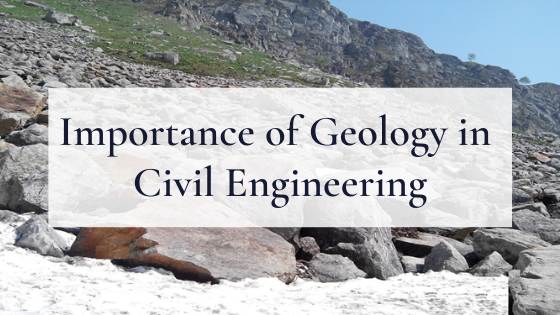The 10-Minute Rule for Specialized Geotechnical Engineering Solutions
The 10-Minute Rule for Specialized Geotechnical Engineering Solutions
Blog Article
The Greatest Guide To Specialized Geotechnical Engineering Solutions
Table of ContentsSome Known Questions About Specialized Geotechnical Engineering Solutions.Everything about Specialized Geotechnical Engineering SolutionsThe 2-Minute Rule for Specialized Geotechnical Engineering SolutionsRumored Buzz on Specialized Geotechnical Engineering Solutions
They conduct site investigations, gather samples, do research laboratory examinations, and evaluate data to examine the viability of the ground for building and construction projects. Based on their findings, geotechnical engineers provide recommendations for foundation design, slope stability, keeping structures, and mitigation of geotechnical risks. They work together with other professionals, such as architects, structural engineers, and construction groups, to make certain that geotechnical factors to consider are incorporated right into the general job style and application.
Foundation Design: Geotechnical engineers play a vital function in creating foundations that can safely support the intended structure. They assess the dirt problems and tons demands to figure out the proper foundation type, such as shallow structures (e.g., grounds), deep structures (e.g., stacks), or specialized techniques like soil improvement. They take into consideration variables such as negotiation limitations, bearing ability, and soil-structure communication to establish ideal foundation layouts.
Specialized Geotechnical Engineering Solutions for Beginners
Here are some sorts of geotechnical engineers: Structure Engineer: Structure engineers concentrate on developing and assessing foundations for frameworks - Specialized Geotechnical Engineering Solutions. They evaluate the dirt conditions, lots requirements, and website qualities to establish the most proper foundation type and layout, such as shallow structures, deep structures, or specialized techniques like heap foundations
They carry out area testing, gather examples, and evaluate the accumulated data to define the dirt residential properties, geologic formations, and groundwater conditions at a website. Geotechnical Instrumentation Designer: Geotechnical instrumentation engineers concentrate on surveillance and measuring the habits of dirt, rock, and frameworks. They install and maintain instrumentation systems that keep an eye on variables such as soil settlement, groundwater degrees, incline activities, and structural displacements to examine efficiency and give early warnings of prospective concerns.
In the workplace setting, geotechnical engineers utilize specialized software application devices to execute estimations, create designs, and evaluate data. Specialized Geotechnical Engineering Solutions. They prepare records, evaluation task requirements, connect with customers and group participants, and coordinate job activities. The workplace setup offers a conducive setting for research, analysis, and cooperation with other professionals entailed in the task
They frequently go to project sites to conduct site examinations, analyze geotechnical problems, and collect information for analysis. These sees include taking a trip to different locations, sometimes in remote or challenging surfaces. Geotechnical designers may carry out soil tasting, conduct examinations, and screen building activities to ensure that the geotechnical aspects of the task are being carried out properly.
The Specialized Geotechnical Engineering Solutions Diaries
Geotechnical engineers additionally work in specialized geotechnical research laboratories. In these facilities, they perform experiments, do examinations on soil and rock examples, and evaluate the design buildings of the materials. Geotechnical research laboratory engineers work thoroughly in these environments, taking care of testing tools, operating instruments, and videotaping information. They collaborate with other lab personnel to ensure accurate and dependable screening results.
Retaining Walls: Producing wall surfaces that keep back soil to stop landslides from this source and give stability on sloped terrains. Embankments and Earthworks: Designing embankments for roads, railways, and dams to guarantee they continue to be secure under stress. The mining industry depends heavily on geotechnical design to make sure the safety and security and long life of its operations.
With this in mind, we have designed our program to prepare pupils for success. Geotechnical engineers are entailed in all stages of the design of frameworks, from idea to construction. Their job is vital in the design and preparation process as they analyze the stability of dirt, clay, silt, sand, and rock, prior to building commencing.
An Unbiased View of Specialized Geotechnical Engineering Solutions
This is complied with by a ground examination based upon the searchings for of the desk study and includes trial matching and tasting to discover any kind of possible concerns. Geotechnical engineers work within multidisciplinary teams, supported by intermediate and junior engineers as well as by CAD service technicians. As an elderly go to these guys geotechnical designer on hop over to these guys a hydro plant job, jobs might include joining technological evaluations (e.g., peer evaluations), tailings dam assessments, dam security evaluations, and various other research studies connected to the design and building of mine waste facilities.
While some specialists are experts only in geotechnics, others may work under titles like engineering rock hound or ground designer within comparable abilities. As a geotechnical engineer, you'll require to: construct and keep partnerships with customers and other professionals associated with the website, throughout each projectmaintain safety and security criteria on site bear in mind cost effects when you make recommendationsstudy geological maps and airborne photos from a series of resources and from various time periodsexamine building plans to see how viable they are based upon your understanding of the siteinvestigate dangers or geological hazards for the sitesearch for eco delicate features, such as land fill begin to develop factual and expository ground modelsplan field investigationsdrill and evaluate examples of bedrock, soil, groundwater and added materials supervise various other professionals on sitesolve technological problems as they arise, such as unanticipated structures at drill sitesmonitor problems during and after building and construction to make certain structures are steady in the short and lengthy termadd data accumulated on site to your first researchcreate geotechnical calculations, illustrations, and two or three-dimensional computer system models analyzing the datamake suggestions concerning the suggested use the site.
There are great deals of chances to fulfill new individuals, as you'll work with a variety of professionals at every site. The job can be stressful as you may be in charge of the safety of others while on site. There is additionally a high level of monetary responsibility, as the recommendations you make can have severe price implications.

Report this page